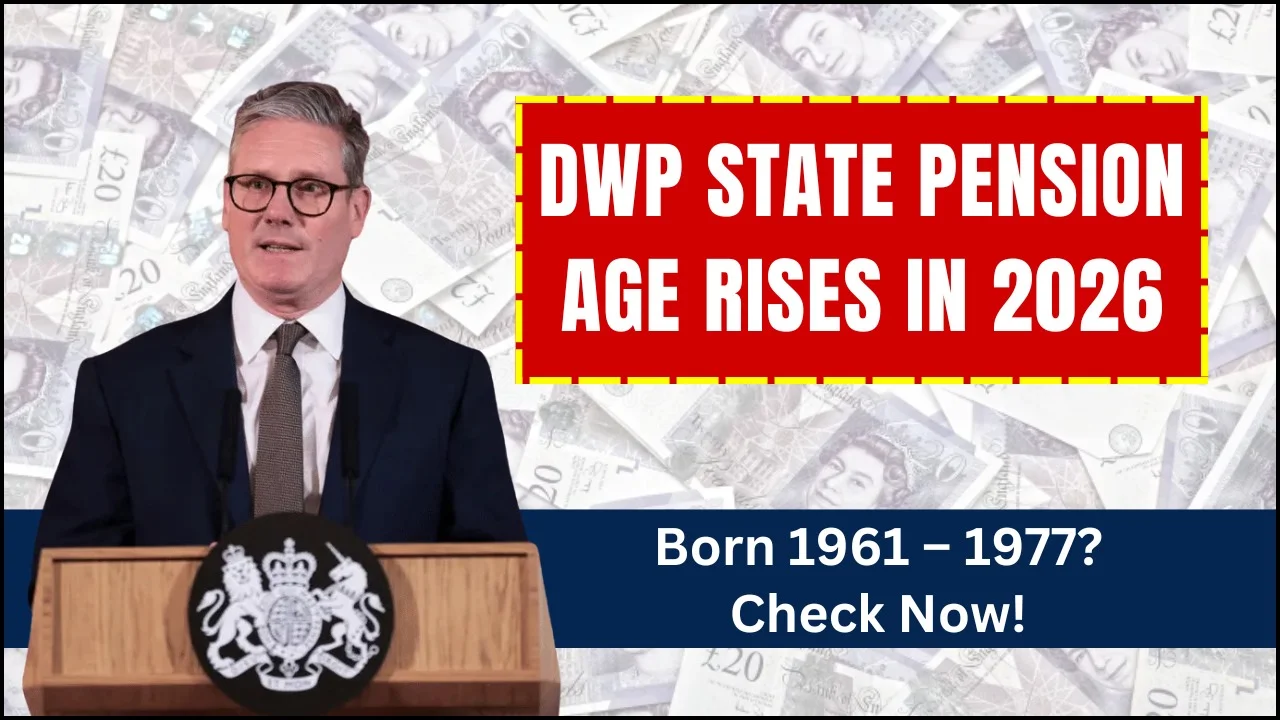The UK’s retirement landscape is about to undergo a significant transformation. Starting from April 2026, the State Pension age will begin to rise from 66 to 67, a change that will directly affect millions. This phased increase, first legislated in 2014, reflects the government’s strategy to handle the economic burden of an ageing society.
While the intention is to keep the pension system financially viable, it also means individuals nearing retirement must revisit their plans, budgets, and expectations.
Overview
| Key Change/Topic | Details |
| New pension age | Rising from 66 to 67, starting April 2026, complete by 2028 |
| Who is affected | Born March 6, 1961–April 5, 1977 |
| Reason | Increased life expectancy & rising pension costs |
| Future changes | Possible rise to 68 (by 2046) or even 69 (under review) |
| 2025 pension boost | 4.1% increase; full New State Pension to reach ~£12,016.75 |
| What to do next | Use GOV.UK calculator, review savings, seek financial advice |
Who Will This Impact?
If you were born between March 6, 1961, and April 5, 1977, you’ll now have to wait until your 67th birthday to claim the State Pension. At present, the pension age stands at 66 for both men and women. However, from April 2026, this threshold will gradually rise, reaching 67 by March 2028.
Why the Change?
When the modern State Pension system was established in 1948, average life expectancy hovered around 66 years. Fast forward to today, and people are living well into their 80s. This longevity means many are drawing pensions for two decades or more, placing significant strain on public finances.
Currently, the annual cost of State Pensions exceeds £100 billion. According to the government, raising the pension age is necessary to:
- Maintain the long-term sustainability of the system
- Reflect improved life expectancy figures
- Reduce pressure on taxpayers and public finances
Could the Pension Age Go Even Higher?
Although the move to age 67 is locked in, discussions about future increases are already underway. The government has plans to raise the State Pension age to 68 by 2046, but recent debates suggest this could be brought forward.
Some experts have even proposed lifting the age to 69 in the coming decades, although no formal schedule exists yet. The Department for Work and Pensions (DWP) is tasked with reviewing the pension age every five years. With a new Labour government now in office, another review could soon lead to additional changes.
Pension Payments Are Set to Rise in 2025
Despite the delay in claiming the State Pension, there is some relief on the financial front. Thanks to the Triple Lock guarantee—which raises pensions annually by the highest of wage growth, inflation, or 2.5%—State Pension payments will increase by 4.1% from April 2025.
This change means:
Annual payments under the full New State Pension will go from £11,541.90 to £12,016.75
Weekly payments will rise from approximately £221 to £231
This equates to an extra £474.85 per year for eligible retirees.
| Date | Full New State Pension (Annual) | Weekly Equivalent |
| Current (2024–2025) | £11,541.90 | ~£221 |
| From April 2025 | £12,016.75 | ~£231 |
Steps to Prepare for the Pension Age Shift
If you fall within the affected birth years or are nearing retirement age, now is the time to review your plans. Consider these practical steps:
- Use the official GOV.UK pension calculator to check your new retirement age and get a forecast of your future payments (GOV.UK State Pension)
- Re-evaluate private pension savings and workplace schemes to identify potential shortfalls
- Explore alternative income sources, such as Individual Savings Accounts (ISAs), investments, or part-time work
Seek advice from a qualified financial adviser to help adjust your retirement plans and timelines
Broader Implications for Daily Life
The decision to delay the State Pension age by a year or more goes beyond a simple administrative change—it can deeply affect the retirement experience for millions:
- Those with physically demanding jobs or health issues may struggle to extend their working life
- Individuals may need to adjust their planned retirement lifestyle or scale back spending
- Families could face new financial pressures as older members remain in the workforce longer
- Understanding these broader effects makes proactive planning all the more critical.
What Might Happen Next?
The move to age 67 is only part of a wider conversation about the sustainability of the UK pension system. With further increases possible, it’s essential for those currently in their late 40s, 50s, or early 60s to:
- Stay updated on DWP reviews and announcements
- Consider flexible retirement options
- Regularly check private pension balances and contributions
Final Thoughts
This pension age rise will reshape retirement plans for millions, making financial preparedness more important than ever. Staying informed and making strategic adjustments today can help secure a more comfortable retirement tomorrow.
For the most accurate forecast and updates, visit the official GOV.UK State Pension page.
